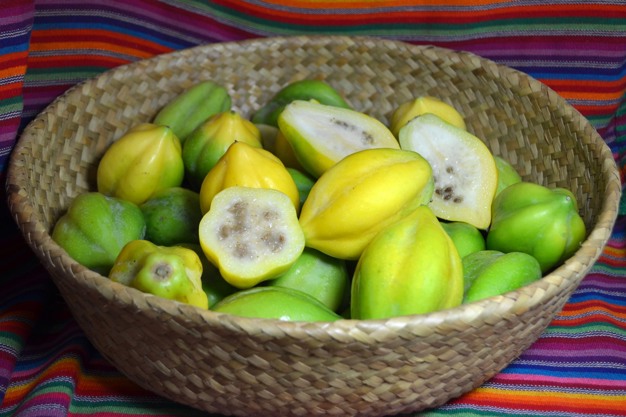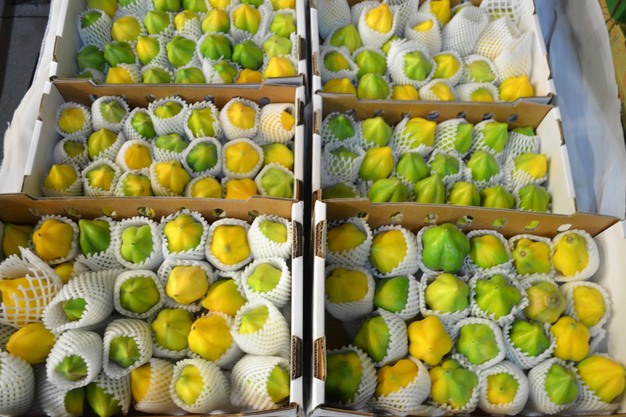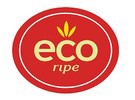Whether it's grapes or apples or–in this case papayas–many growers and shippers across the country are looking into new varietals of fruits especially. This includes Ecoripe Tropicals which began shipping a new type of papaya in March, the Andean Mountain Papaya.

"We're currently exploring the market demand since it's a very new product. We're bringing in small volumes but carrying it weekly to have it in our inventory so people can try it out," says Ecoripe's Marc Holbik.
Compared to a conventional papaya, the Andean Mountain Papaya is much smaller–it takes approximately four of them to make one pound. "So they're very small and are grown in the Andes in South America," says Holbik. "They're also highly fragrant and very aromatic but the fruit has a mild taste." Ecoripe also discovered that when you eat the fruit's seeds, it tastes similar to passionfruit.
How to eat it
Unlike a conventional papaya that is often eaten raw, the Andean Mountain Papaya is often cooked. Holbik, whose grandmother is from Chile, would boil the fruit with some sugar after a meat-heavy meal or barbecue because the fruit also has digestive properties that help the body absorb proteins.

As for demand, it's good so far. "We've been able to move our inventory weekly and a big part of it is just getting people to know about it," says Holbik, who says the fruit appeals to consumers with a Chilean, Peru or South American connection. "I also think people looking for the health benefits of fruit as well as just fruit lovers and the kinds of people who love trying different things will be interested."
Meanwhile, pricing on this papaya is steady. "There's very good production in Chile that's mainly for the domestic market. So the export volume that we require is a small portion of that production so that means the pricing is stable," says Holbik.
 For more information:
For more information:
Marc Holbik
Ecoripe Tropicals
Tel: +1 (305) 889 1734
[email protected]
www.ecoripe.com










